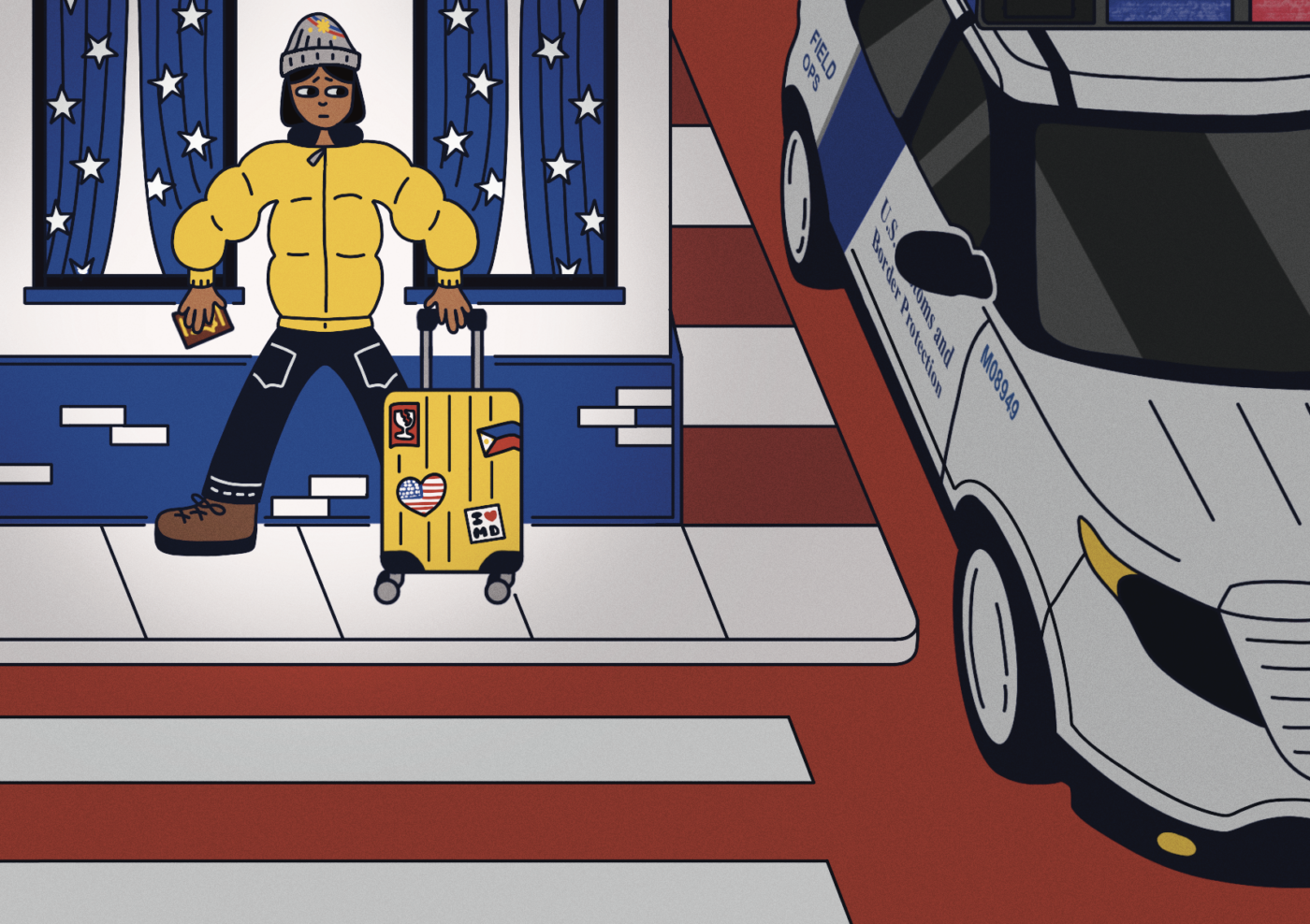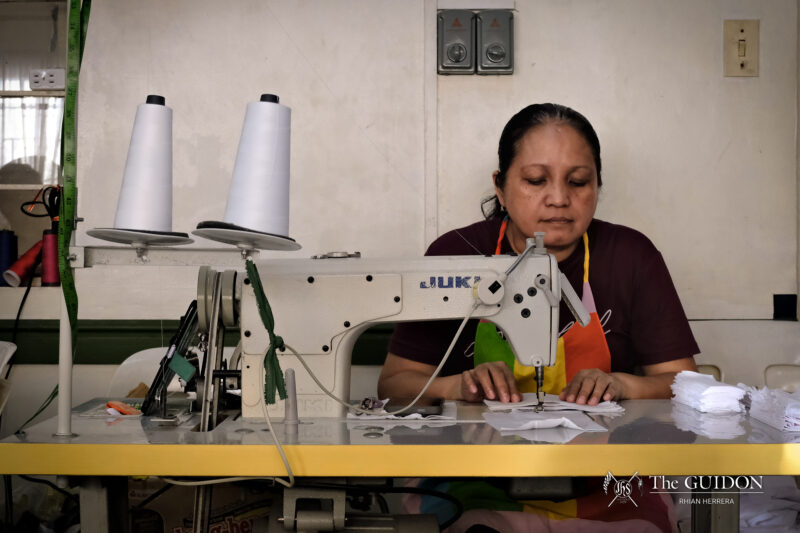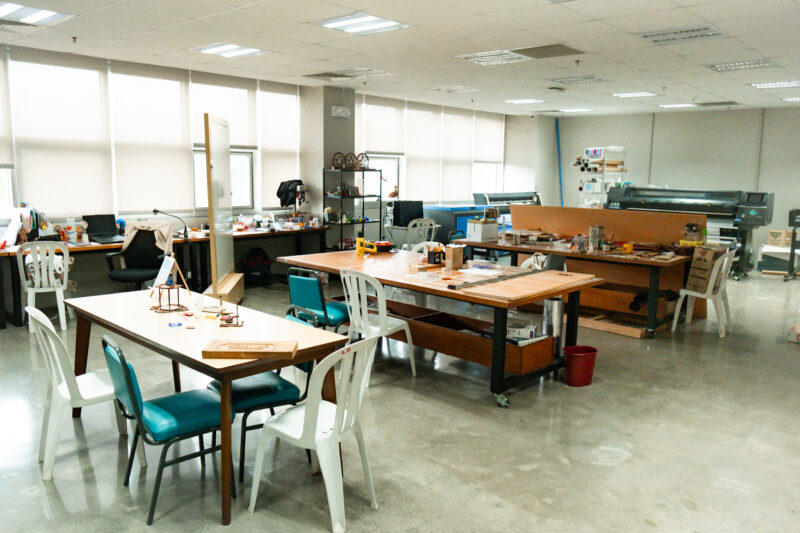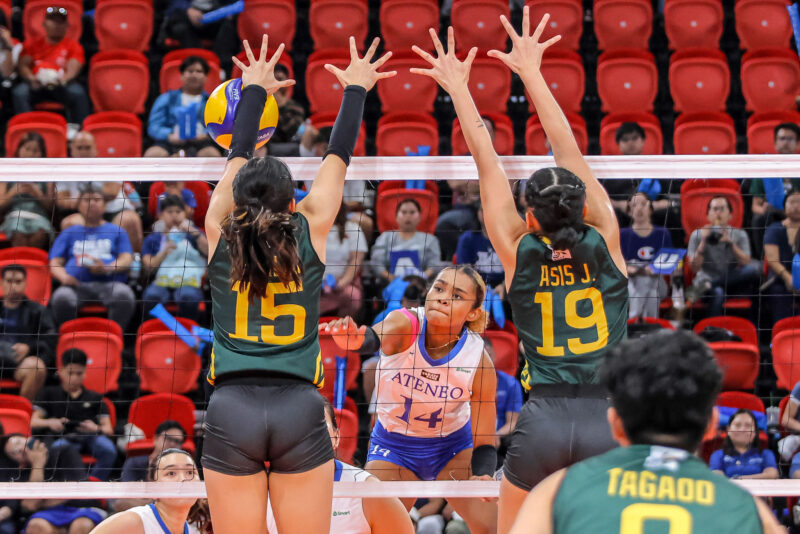Filipinos living and working in America do not want to flee the land of opportunity, but the results of the 2024 elections have left them grappling with a lack of safety.
FILIPINOS IN the United States (US) are used to being cautious. Joanna*, a Filipino and naturalized US citizen, knows that her features mark her as an outsider. To keep herself safe, she always needs to gauge how other Americans see her.
This vigilance among Joana and other Filipino immigrants was heightened by current US President Donald Trump’s 2024 re-election, given his anti-immigrant campaign platforms calling for stricter immigration laws.
Yet, Trump’s policies are not just a crackdown on illegal immigration, but inclusion as a whole. Joanna says his administration’s “racial and ethnic prejudice and divisiveness” targets anyone who does not look White. Thus, no immigrant—legal or otherwise—is safe.
In the shadows
Joanna was never a Tago ng Tago (TNT) or an illegal immigrant. She came to the US because her mother filed a petition so that they could be legally reunited. This expectation and hope of seeing her immediate family again helped her wait 10 years for her legal documents to be processed.
Still, going to the US meant leaving behind everything she knew to start from scratch.
Despite holding a college degree in the US, Joanna found herself working minimum-wage jobs, often juggling two or three at once. It was hard but ultimately worthwhile, as after seven years, she was able to buy a house in Maryland.
Today, Joanna lives with her mother in that same house, working full-time for her local government and part-time at a legal support firm. Her life is “nothing special,” characterized by ten-hour shifts, six days a week, followed by chores and caring for her elderly mother.
However, this setup changed when Joanna learned that Trump had won the 2024 US Presidential Election. She was at work when the news broke and her first thought was: “Here we go again.”
According to Joanna, the polarized US news cannot be trusted to be impartial, so every claim Trump makes demands fact-checking. His landslide win also makes her question if those around her share his hardline rhetoric of vilifying anyone who is not White. Under Trump’s first presidency, looking Filipino felt like a crime. She carried a copy of her naturalization papers every time she traveled to prove that she belonged in the US.
Losing battle
For Joanna, the future looks bleak, but it is just another cycle of being beaten down. Associate Professor Oscar Campomanes, PhD, an American Empire literary scholar, explains that Trump’s administration is part of the unequal history of non-White immigration in the US.
This historical inequality traces back to the colonial era. Campomanes says the declaration of the Tydings-McDuffie Act transformed Filipino status from American national to alien national, enabling stricter immigration policies.
However, this barrier did not stop Filipinos from migrating. While the influx of racial immigrants enriched the US economy, the Trump administration repeatedly paints them as resource exploiters.
This narrative worries Joanna as it fuels even harsher mistreatment, made all the more ironic by the reality it distorts. Campomanes expresses that immigrants are deemed the backbones of the US economy as they participate in minimum-wage labor such as industrial and agricultural work. Despite their essential contributions, these jobs often fail to meet their basic living needs, pushing many like Joanna to juggle multiple jobs just to stay afloat.
Trump’s attempt to remove birthright citizenship adds to the anti-immigrant campaign by changing the Constitution to perpetuate racial hostility. “Somehow a veil was lifted and it was okay to mock people who do not fit what an American looks like,” Joanna mentions.
Campomanes calls this phenomenon “racialism,” where racist perspectives become institutionalized and accepted—even by the Filipinos being excluded. He highlights that so many of them embraced Trump’s advocacies to feel like they belong in America. With this reality, true equality remains elusive until people dismantle the discrimination embedded within individuals and institutions.
Land of the free
For Joanna, this crusade comes down to the color of one’s skin. She is scared that Trump’s circle will “do what they want” and regress the fight for equality. Despite this, she finds hope in remembering that she is a Filipino.
“I think the innate resiliency of most Filipinos, which I know I also have, is a major factor in being able to adapt and thrive here. We are survivors,” Joanna expresses, gathering strength from recalling her home and community. Through this memory, she finds hope in Filipinos’ tenacity and ability to rely on one another amid distrust in authorities.
The struggle is far from over, according to Campomanes, especially as it is deeply woven into America’s history. Nonetheless, hope endures, carried by immigrants like Joanna, who stand resolute—not just for themselves but for a community that has long fought to survive, uplift, and belong against all odds.







